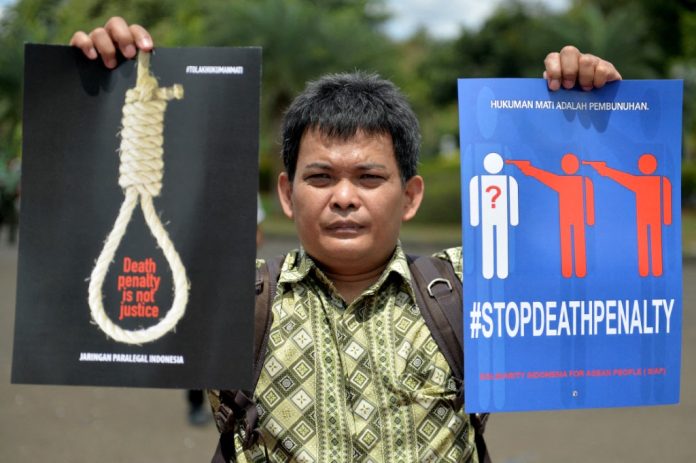Indonesia continues to impose death sentences at an alarming rate despite not having carried out any executions since 2016, according to a new report by Amnesty International.
The global human rights group’s annual report, Death Sentences and Executions 2024, revealed that at least 85 individuals were sentenced to death in Indonesia last year, a significant number that contributes to a worldwide death row population of over 28,000.
Of those sentenced in Indonesia, 64 were convicted of drug-related crimes, while 21 were sentenced for murder.
This sustained imposition of the death penalty places Indonesia among a small group of countries still issuing capital punishment at a time when global executions reached their highest level in nearly a decade.
The report, released Tuesday, recorded 1,518 executions worldwide in 2024—marking a 32 percent increase from the 1,153 recorded the previous year and the highest number since 2015, which saw 1,634 executions.
Despite this rise, executions were carried out in only 15 countries, the lowest number on record for the second year in a row.
“With just 15 countries carrying out executions in 2024 […] this signals a move away from this cruel, inhuman and degrading punishment,” said Amnesty International Secretary General Agnès Callamard.
Indonesia’s continued issuance of death sentences highlights what Amnesty International Indonesia described as a contradiction in government policy.
“On the one hand, the government does not carry out executions, but on the other hand, judges continue to follow the global trend of imposing the death penalty, especially in drug cases,” said Usman Hamid, executive director of Amnesty International Indonesia, in a press statement issued on April 8.
Usman called on the Indonesian government to follow the lead of neighboring Malaysia, which abolished the mandatory death penalty for serious crimes in 2023.
He said Malaysia’s move to commute death sentences for over a thousand convicts exemplifies a progressive approach to justice.
“Indonesia must follow Malaysia’s example and must not lag behind its neighbors in terms of the death penalty,” he said.
Amnesty’s data also revealed that at least 2,087 death sentences were handed down across 46 countries in 2024—a decline from 2,428 in 52 countries in 2023.
The majority of executions last year were concentrated in the Middle East and North Africa region.
Despite the global decline in countries carrying out executions, Amnesty warned that the continued sentencing of individuals to death—especially in countries like Indonesia—undermines international efforts to abolish capital punishment entirely.
“By choosing abolition or elimination of the death penalty, Indonesia can realize a justice system that is fair, humane and in line with the global trend of ending the death penalty,” Usman said.









